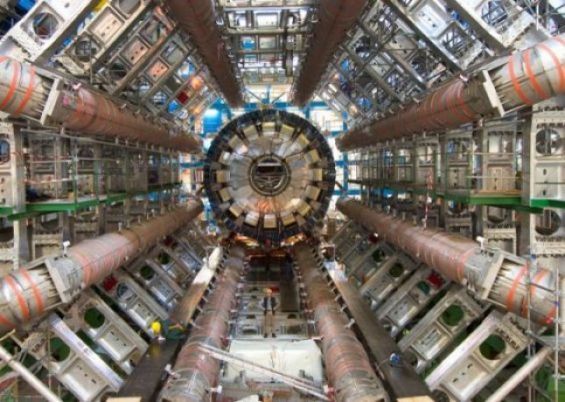The Moroccan Foundation for Advanced Science, Innovation and Research (MAScIR) announced Tuesday that it has joined the European Organization for Nuclear Research (CERN) as an associated technical institute to contribute to the High Granularity Timing Detector (HGTD) project aimed at improving the performance of the ATLAS detector.
«After several months of exchanges with its Digitalization & Microelectronics Smart Devices center, the ATLAS International Collaboration co-opted the MAScIR Foundation, following a unanimous vote by the 180 member institutes from 38 different countries», said MAScIR in a press release.
The ATLAS detector, along with other detectors located at different points of the 27-kilometer-long Large Hadron Collider (LHC), is located in the border region between France and Switzerland.
The LHC is the world's largest and most complex scientific instrument, which has made it possible to confirm the existence of the Higgs boson in 2012, according to the press release
«It allows us to explore the fundamental nature of our Universe and the search for dark matter», MAScIR Foundation added.
According to the same source, CERN has maintained, since 1996, a rich partnership with the Moroccan High Energy Physics Network (RUPHE), supported by the Ministry of National Education, Vocational Training, Higher Education and Scientific Research.
The MAScIR Foundation will make its expertise in the field of microelectronics available to CERN. Its contribution will involve close collaboration with the Institute of High Energy Physics (IHEP) in China, the Academia Sinica in Taiwan, the Johannes Gutenberg University of Mainz in Germany, the Institut de Fisica d'Altes Energies in Spain, the Mohammed V University in Rabat, the Mohammed I University in Oujda, the Ibn Tofail University in Kenitra and the Hassan II University in Casablanca.
MAScIR will also work on the optimization and design of a prototype of the HGTD in order to participate in the assembly and mounting of part of this detector, the Moroccan Foundation added, stressing that university researchers, including Moroccans, will benefit from its expertise in applied research, especially in terms of methods of validation and verification of electronic systems to ensure the smooth running of experiments during the use of the LHC collider.
MAScIR will thus be one of the six sites selected for the production and quality control of 16% of the overall volume of the HGTD project in its final phase.
Created in 2007, the MAScIR Foundation aims to promote and develop research and development centers in Morocco that meet the country's needs in advanced technologies.




 chargement...
chargement...












